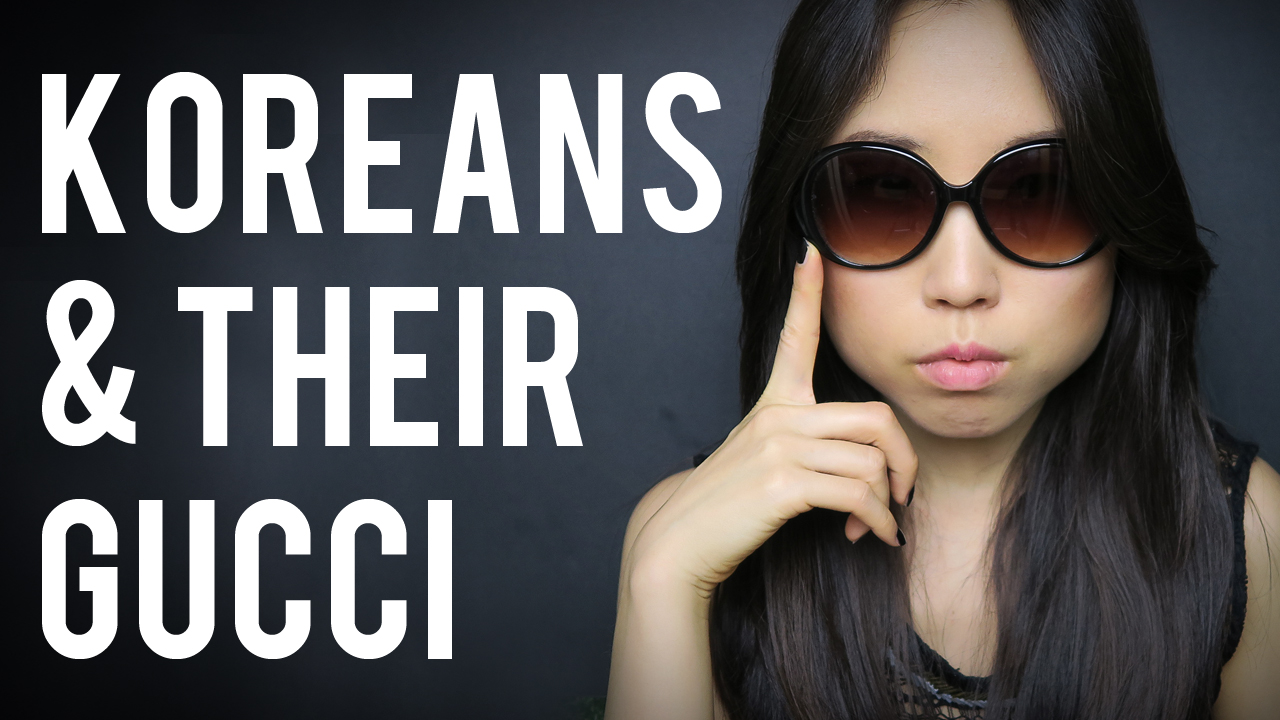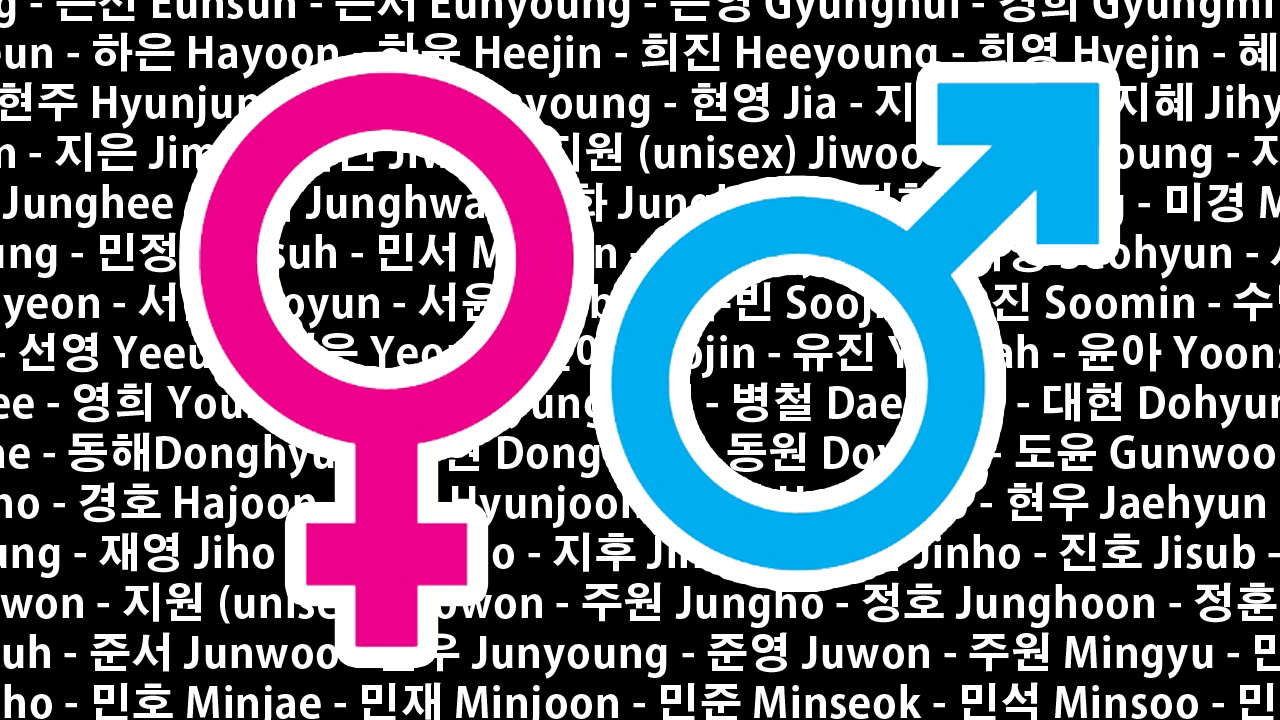This week on KWOW, we learn the structure of Korean names and show you how to choose your own name.
A Korean name commonly has three syllables and does not have any space in between them:
이효리
강대성
윤미래
However when the names are Romanized, there is a space placed after the first syllable:
이효리 > Lee Hyori
강대성 > Kang Daesung
윤미래 > Yoon Mirae
Depending on preference, a space or a dash may be used between the second and third syllable. I personally prefer the Romanizations without dashes.
이효리 > Lee Hyo-ri
강대성 > Kang Dae-sung
윤미래 > Yoon Mi-rae
The first syllable of the three syllables is the family name:
이효리 > Lee Hyori (Lee is the family name.)
강대성 > Kang Daesung (Kang is the family name.)
윤미래 > Yoon Mirae (Yoon is the family name.)
The second and third syllables are generational and personal names:
이효리 > Lee Hyori (Hyo & Ri are generation and personal names.)
강대성 > Kang Daesung (Dae & Sung are generation and personal names.)
윤미래 > Yoon Mirae (Mi & Rae are generational and personal names.)
The generational name is shared with your siblings. And at times even shared with your cousins or other members in your extended family. As an example, let's take a close look at the twins from the Kpop band Boyfriend:
조영민 > Jo Youngmin
조광민 > Jo Gwangmin
The first syllable 조 (Jo) is their family name. Does the second or third syllable have shared characters? In this case, the brothers share the third syllable, thus 민 (Min) is their generational name. Their personal names are 영 (Young) and 광 (Gwang).
Let’s take a look at another set of sibling names. You know Choa (초아) and Way (웨이) from Crayon Pop? They’re twinsies. Their birth names are:
허민진 > Huh Minjin
허민선 > Huh Minsun
Their family name is 허 (Huh). The generational name is 민 (Min). Their personal names are 진 (Jin) and 선 (Sun).
But not all Korean siblings have a shared generational name. Have you heard of Akdong Musician? They’re a brother and sister duo:
이찬혁 > Lee Chanhyuk
이수현 > Lee Soohyun
이 (Lee) is their family name. However they don’t have any matching second or third syllables.
While most Koreans have three-syllable names, some Koreans have two syllable names:
이진 > Lee Jin
김범 > Kim Bum
원빈 > Won Bin
Now let’s talk about Name Trends! When choosing a name, Koreans may pick something for its meaning or simply because they like the sound of it. Some Korean names are based on Hanja, where each syllable means something in Chinese. Certain Chinese characters will be more masculine, while others more feminine. There are unisex characters as well.
For example, CL from 2NE1. Her Korean name is 이채린 (Lee Chaerin). Her family name is 이 (Lee), which means “gold” in Chinese. CHAE (彩) means “color.” RIN (麟) means “female unicorn.”
Another example! Park Chanwook (박찬욱) is the director of Old Boy and the Vengeance Trilogy. PARK (朴) is his family name. “Park” means plain & simple in Chinese. CHAN (贊) means praise, approve, applaud. OOK (郁) means melancholy.
Some Korean parents name their kids based on a Korean word. So instead of Hanja, they go Hangeul.
For example, you know 윤보라 (Yoon Bora) from SISTAR? While her family name is a Chinese character, her given name is a Korean word. Her family name is YOON (尹), which means “rule and govern” in Chinese. Her name BORA means “purple” in Korean. Altogether, her name is ruling purple. Makes sense. purple was once considered a color of royalty.
Let’s analyze another Korean-worded name:
유슬기
劉슬기
Yoo Seulgi
YOO (劉) is the family name. It means “kill or destroy.” SEULGI (슬기) is a Korean word that means “wisdom.” Woah, killing wisdom?! When choosing names, be mindful. I made this name up, so let’s swap out the family name to MUN (文), which means literary, gentle and refined:
문슬기
文슬기
Mun Seulgi
Altogether the name now means "refined wisdom." Much better!
These days Koreans also have English-style names. Like Suzy from Miss A. Her Korean name is pronounced as 배수지 (Bae Suji). 수지 (Suji) is a Koreanization of Suzy.
You know Dara from 2NE1? Her Korean name is 박산다라 (Bak Sandara). 산다라 (Sandara) sounds like the Koreanization of Sandara.
Congratulations! You now know the structure of a Korean name. It’s time to choose your own. Would you like a name with Chinese characters? Or a name with a Korean word. Or maybe have an English-style name? Choose which direction you want to go.
If you don’t know yet, no need to rush. You can choose an official name later. For now you can make a temporary name just for fun.
Let’s work on the first syllable. Family names are typically passed down, but today, you get to choose which Korean clan you want to swear loyalty to. You can choose a common Korean family name like Kim, Lee or Park. Or you can join my clan: 오 (Oh). There’s about 700,000 of us!
Let’s say you want your second and third syllables to be Hanja… Chinese characters. I’ve compiled a list of 50 popular female names and 50 popular male names using Hanja. The link is here. Feel free to choose a name that sounds beautiful to you. You can also study the name of your favorite Korean celebrities as a source of inspiration.
If you choose to pick a Korean word as your name, here are some ideas:
BADA (바다) means “ocean.”
HANA (하나) means “one.”
HANEUL (하늘) means “heaven” and “sky.”
HARU (하루) means “day."
MIRAE (미래) means “future.”
NARAE (나래) means “wing.”
YURI (유리) means “glass.” It’s the Korean version of “Crystal.”
Notice how these Korean words have a poetic vibe to them. So while you don’t have to choose a Korean word that is commonly used as a name, be mindful of its meaning and ambiance.
The previous names are feminine. Here are some masculine ones:
SEUNGRI (승리) means “victory.”
DAESUNG (대성) means “a great sage.”
TAEYANG (태양) means “sun.”
Seungri, Daesung, Taeyang… all members of Big Bang!
Or perhaps you’ve decided to go with an English-style name. If you can shorten your birth name into two syllables to make it fit into the three-syllable Korean name structure. If not, no sweat. Here are some examples:
Jane becomes 재인 (JAE-EEN).
Eugene becomes 유진 (YU-JIN).
Gina becomes 지나 (JI-NA)
Sarah becomes 사라 (SA-RA).
What about the male names? Here are some examples:
Joseph becomes 조셉 (JO-SEP).
Peter becomes 피터 (PEE-TUH).
Kevin becomes 케빈 (KEH-BEAN).
Eric becomes 에릭 (EH-RIK).
Harry becomes 해리. (HAE-RI)
Hope you enjoyed today lesson. Did you choose a Korean name? What is it? Let me know in the comment section. Maybe you can even choose a Korean name for the rest of your family! See ya next Wednesday on YouTube for another lesson! Anyong!












